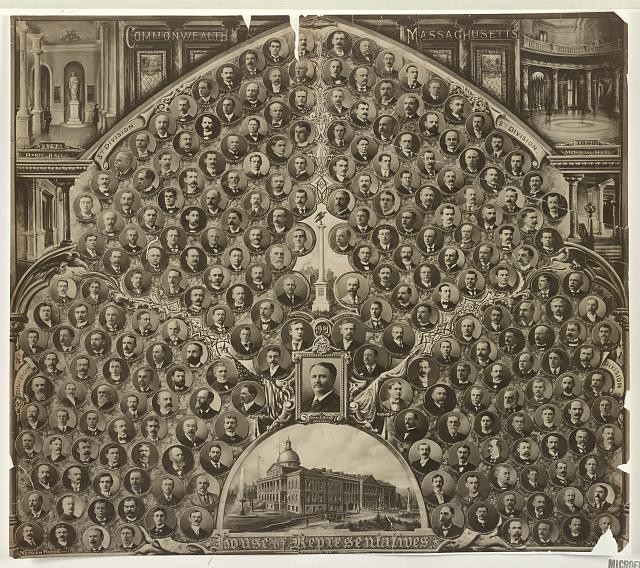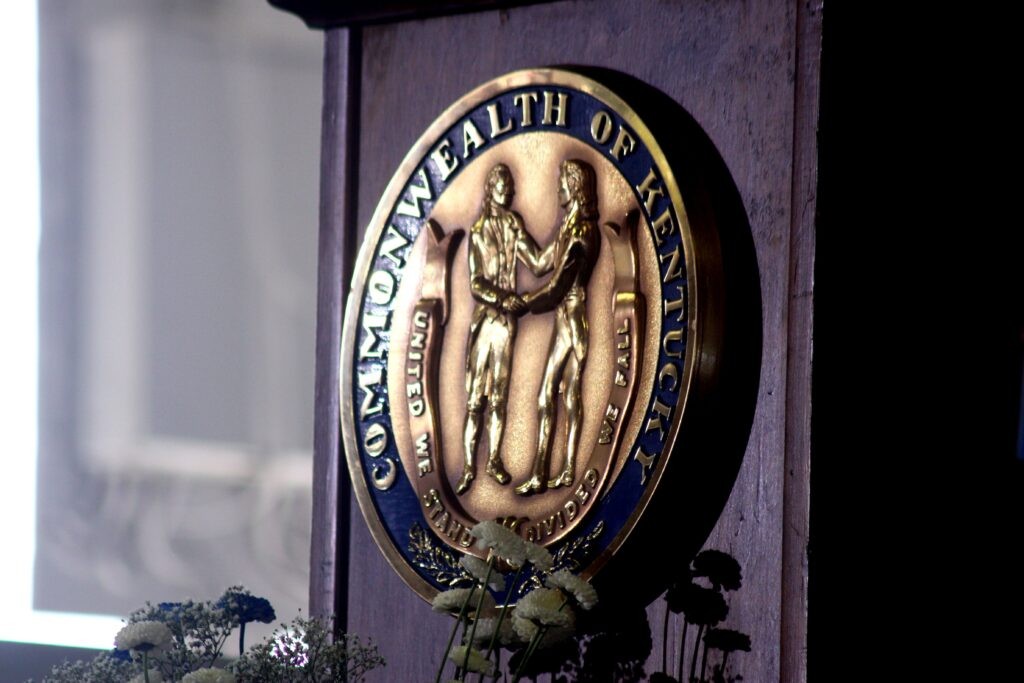Are you curious about the difference between a commonwealth and a state in the U.S.? The terms can be confusing, but WHAT.EDU.VN is here to help clarify the distinction. We’ll explore the historical reasons behind this naming convention and explain why it doesn’t impact the legal status or rights of citizens. Learn about state designation and government structure.
1. Defining Commonwealth and State: Are They Different?
The short answer is no. In the United States, the term “commonwealth” when referring to a state, doesn’t carry any legal or political weight that separates it from a “state.” It’s primarily a historical and symbolic distinction. You might be asking the question: What are the nuances that led to the adoption of this term by a few select states, and are there any practical implications for the residents of these commonwealths?
2. Which States Are Commonwealths?
Four states in the U.S. officially use the term “commonwealth” in their full names:
- Kentucky
- Massachusetts
- Pennsylvania
- Virginia
2.1. Why These States?
The use of “commonwealth” generally reflects a historical emphasis on the idea of government being based on the consent of the people and existing for the common good or welfare of the population. It’s a declaration of popular sovereignty.
3. The Historical Roots of “Commonwealth”
To understand the term’s usage, it’s helpful to look back at its historical origins. The term gained prominence in 17th-century England.
3.1. England’s Commonwealth Period
During the English Civil War (1649-1660), after the execution of King Charles I, England was declared a commonwealth – a republic without a monarch. This period influenced political thought, emphasizing governance for the common good rather than by royal decree.
3.2. Virginia’s Early Adoption
Virginia briefly adopted the “commonwealth” designation in the 17th century before reverting to a royal colony. The term was reintroduced in 1776 with the adoption of its constitution, signaling a government based on the sovereignty of the people.
4. Commonwealth vs State: Unpacking the Meaning
While the term “commonwealth” evokes historical ideals, in contemporary American governance, it doesn’t translate to tangible differences in how these states operate.
4.1. No Legal Distinction
Commonwealths have the same rights, responsibilities, and powers as any other state in the U.S. They are subject to the U.S. Constitution and federal laws in the same way as non-commonwealth states. The form of government is the same.
4.2. Symbolic Significance
The continued use of the term “commonwealth” is primarily symbolic. It serves as a reminder of the state’s commitment to the common welfare and its foundation in the consent of the governed.
5. How Did Each State Become a Commonwealth?
Each of the four commonwealth states adopted the designation during or shortly after the American Revolution, reflecting a desire to emphasize their commitment to republican ideals.
5.1. Virginia: A Return to Republicanism
As mentioned earlier, Virginia initially used the term in the 17th century but readopted it in 1776 when it framed its first constitution as an independent state. This emphasized the state’s commitment to a government based on the “common weal.”
5.2. Pennsylvania: Following Suit
Pennsylvania followed Virginia’s lead, adopting its first constitution in September 1776 and officially using the designation of commonwealth.
Pennsylvania State Capitol dome featuring the “Commonwealth” statue.
5.3. Massachusetts: John Adams’ Influence
Massachusetts adopted its constitution in 1780, drafted by John Adams. Adams chose the word “commonwealth,” possibly to emphasize the state’s nature as a representative democracy with anti-monarchial sentiments.
The Massachusetts House of Representatives.
5.4. Kentucky: A Later Declaration
Kentucky, unlike the other three, was not one of the original thirteen colonies. It was part of Virginia until 1792. Although its first constitution was adopted in 1792, it wasn’t until the fourth constitution in 1891 that the preamble formally declared the official name to be “The Commonwealth of Kentucky.”
6. Commonwealth vs. State: Key Differences Summarized
To make things clearer, here’s a table summarizing the key similarities and differences between a commonwealth and a state in the U.S.:
| Feature | Commonwealth | State |
|---|---|---|
| Legal Status | Same as any other state in the U.S. | Same as any other state in the U.S. |
| Federal Laws | Subject to U.S. Constitution and federal laws | Subject to U.S. Constitution and federal laws |
| Powers | Same powers as other states | Same powers as other states |
| Responsibilities | Same responsibilities as other states | Same responsibilities as other states |
| Distinction | Primarily historical and symbolic | Standard term for a constituent unit of the U.S. |
| Emphasis | Government for the “common good” | No specific emphasis implied |



7. Are There Other Types of Commonwealths?
Yes, the term “commonwealth” can also refer to a political community founded for the common good. There’s also the Commonwealth of Nations.
7.1. The Commonwealth of Nations
This is an association of sovereign states, mostly former British colonies, that cooperate on various matters. It’s a completely different entity than the U.S. commonwealth states.
7.2. U.S. Territories as Commonwealths
The term “commonwealth” is also used to describe the political status of Puerto Rico and the Northern Mariana Islands in relation to the United States. These are U.S. territories with a degree of self-government. This is distinct from the four U.S. states using the term.
8. Common Misconceptions About Commonwealths
It’s easy to get confused about commonwealths. Here are some common misconceptions:
- Misconception: Commonwealth states have different laws than other states.
- Fact: They operate under the same federal laws and constitution as all other states.
- Misconception: Commonwealth status gives citizens special rights.
- Fact: Citizens of commonwealth states have the same rights and responsibilities as citizens of any other state.
- Misconception: All commonwealths are the same.
- Fact: The term has different meanings depending on the context (e.g., U.S. state, U.S. territory, Commonwealth of Nations).
9. Why Does This Matter?
Understanding the difference between a commonwealth and a state helps to clarify U.S. history and government. It demonstrates how historical ideas and language can persist even when legal realities evolve.
9.1. Civics Education
Knowing the nuances of terms like “commonwealth” enhances civic literacy and promotes a deeper understanding of the American political system.
9.2. Historical Awareness
It highlights the influence of historical events and philosophies on the development of state identities and constitutions.
10. Exploring State Constitutions
If you’re interested in learning more, you can delve into the constitutions of the four commonwealth states.
10.1. Constitution of Virginia
Explore the historical context and evolution of Virginia’s constitution.
10.2. Constitution of Pennsylvania
Study Pennsylvania’s constitution, which played a pivotal role in shaping the state’s identity.
10.3. Constitution of Massachusetts
Examine the Massachusetts constitution, drafted by John Adams, and its emphasis on representative democracy.
10.4. Constitution of Kentucky
Investigate Kentucky’s constitution and how it formally adopted the “commonwealth” designation.
11. Frequently Asked Questions (FAQs)
Here are some frequently asked questions about commonwealths and states:
| Question | Answer |
|---|---|
| What is the origin of the term “commonwealth?” | The term gained prominence during the English Civil War, referring to a republic without a monarch. |
| Do commonwealth states have different senators? | No, commonwealth states have the same representation in the U.S. Senate as any other state (two senators each). |
| Are there any tax differences in commonwealth states? | No, tax laws in commonwealth states are determined by state and federal legislation, just like in other states. There is no inherent difference due to the “commonwealth” designation. |
| Can a state change its name to a commonwealth (or vice versa)? | Yes, a state could theoretically change its official name through a legal process, typically involving a vote by the state legislature and potentially a public referendum. However, there would be no practical legal effect resulting from such a change. |
| Is Washington D.C. a commonwealth? | No, Washington D.C. is a federal district, not a state or a commonwealth. |
| How does the commonwealth status affect local government? | The commonwealth designation has no impact on the structure or powers of local governments within those states. Local governments operate under state laws and constitutions, just as they do in non-commonwealth states. |
| Does being a commonwealth affect state elections? | No, the designation of “commonwealth” has no bearing on how state elections are conducted. Election laws and procedures are governed by state and federal regulations, applicable to all states equally. |
| What is the difference between a commonwealth and a territory? | A commonwealth (in the context of Puerto Rico or the Northern Mariana Islands) is a U.S. territory with a degree of self-government. It is not a fully sovereign state. A U.S. state, whether it’s called a “state” or a “commonwealth,” is a constituent part of the United States with full sovereignty within the bounds defined by the U.S. Constitution. |
| Do citizens in commonwealth territories vote in presidential elections? | Citizens residing in U.S. territories like Puerto Rico generally cannot vote in U.S. presidential elections unless they establish residency in a U.S. state. |
| Does the term “commonwealth” appear in the U.S. Constitution? | No, the term “commonwealth” does not appear in the U.S. Constitution when referring to states. The Constitution primarily uses the term “state” to refer to the constituent units of the Union. |
12. Conclusion: A Matter of History and Semantics
In conclusion, while the term “commonwealth” carries historical significance and reflects a commitment to the common good, it doesn’t create any legal or political distinctions between those four states and other states in the U.S. It’s primarily a matter of semantics and historical tradition. Understanding this distinction enhances your knowledge of U.S. civics and history.
12.1. Further Exploration
For deeper insights, explore the constitutional histories of Virginia, Pennsylvania, Massachusetts, and Kentucky. Understanding the historical context will give you a better appreciation for the term’s usage.
13. Got More Questions? Ask WHAT.EDU.VN!
Still have questions about commonwealths, states, or anything else? Don’t hesitate! At WHAT.EDU.VN, we’re dedicated to providing clear, accurate, and accessible answers to all your questions. We understand that finding reliable information can be challenging, and we’re here to make it easier.
13.1. Free Answers, Fast
Whether you’re a student, a curious citizen, or just need a quick answer, WHAT.EDU.VN offers a free platform to ask your questions and receive helpful responses from knowledgeable individuals.
13.2. Your Questions Answered
No matter the topic – history, science, current events, or anything in between – we’re here to help you find the answers you need. Stop wondering and start learning today!
13.3. Join Our Community
Connect with others who share your curiosity and passion for learning. WHAT.EDU.VN is more than just a Q&A site; it’s a community where you can explore new ideas and expand your understanding of the world.
Don’t let your questions go unanswered. Visit WHAT.EDU.VN now and ask away!
Contact Us:
Address: 888 Question City Plaza, Seattle, WA 98101, United States
Whatsapp: +1 (206) 555-7890
Website: WHAT.EDU.VN
We’re here to provide clarity and empower you with knowledge. Ask your questions on WHAT.EDU.VN and get the answers you’re looking for today! Let what.edu.vn be your trusted resource for all things knowledge-related. Start asking and start learning!